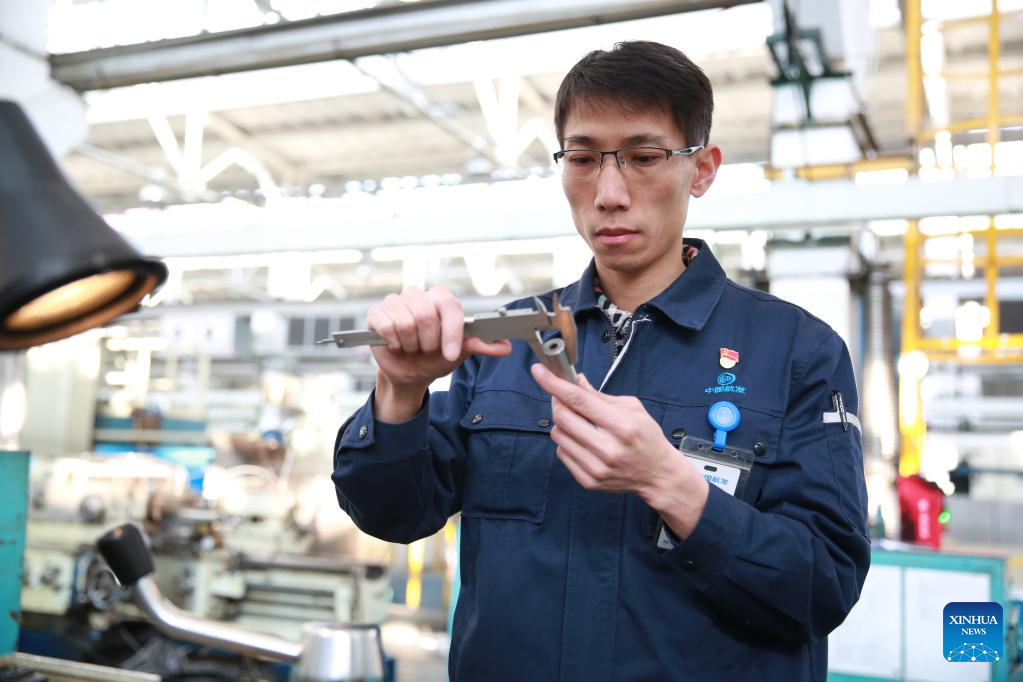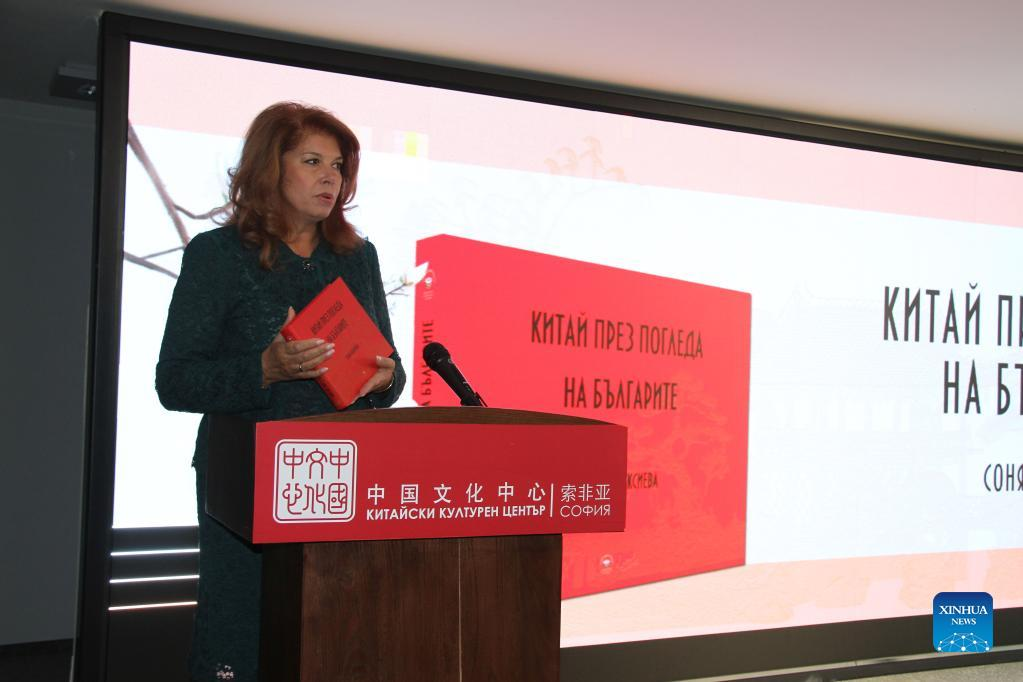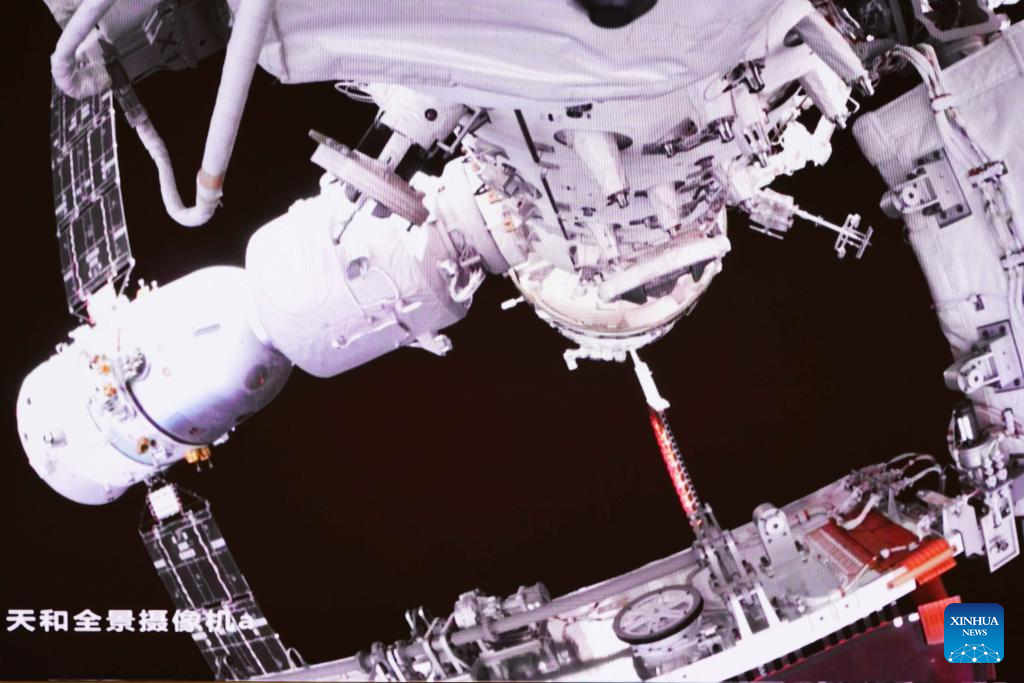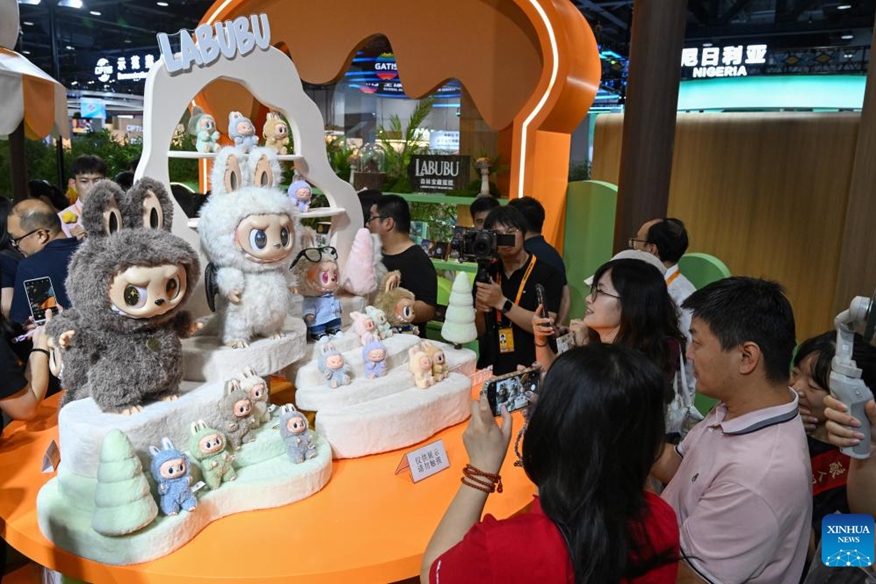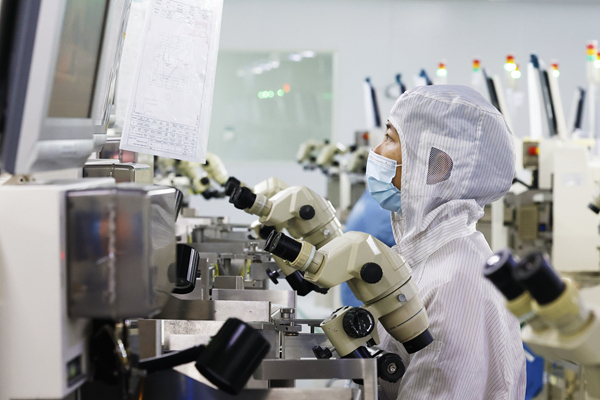
(CFP Photo)
In the first quarter, the high-tech industries accounted for 49.2% of the total added value of industrial enterprises above the designated size, which is 0.8 percentage point higher than the figure for the same period last year.
Among the manufacturing industries, the added value of new energy and aerospace climbed by 31% and 29.5%, respectively. As of the end of March, Jiangsu had 44,000 high-tech enterprises, a year-on-year increase of 19.5%.
The service companies related to strategic emerging industry above the designated size saw their revenue in the first two months achieve a growth of 11.5% year-on-year.
Among them, the growth of software and IT services and new materials-related services expanded by 13.1% and 19.5%, respectively.
During the first three months, investment into high-tech industry picked up pace and reached 8.5% year-on-year, which is 0.6 percentage point higher than the figure for the same period last year.
To analyze specific sectors, investment in high-tech manufacturing and high-tech services increased by 4.9% and 26.2%, respectively, while medical instruments and equipment manufacturing, and R&D and design services registered growth of 16.7% and 31.1%.
A visit to Tianma E-commerce Industrial Park located in Haizhou District of Lianyungang City could help connect the economic figures with reality.
"Our online sales of sports products this year have increased by more than 10% year-on-year, and a significant driver is the increasing spending on sports supplies since China adjusted the COVID-19 response policy," said a manager of Tianma Group.
The city's Ganyu District is home to more than 7,000 online vendors, 3,000 live streamers for e-commerce, and 200 delivery collection points. An official of the district's commerce department said Ganyu registered e-commerce sales of 4.6 billion yuan in the first quarter of the year and 34.98 million packages delivered, including approximately 17.47 million packages of fresh products. This booming e-commerce has also driven the development of sea farming, fishing, storage, processing, packaging, express logistics and other related industries as more than 60,000 people are working in the district's e-commerce sector.
Among the top-performing companies, Xuzhou Construction Machinery Group (XCMG) said it sold 295 new energy concrete mixers in the first quarter, with a market share of 47.66%. In addition, all-electric trucks accounted for 94.73% of new energy trucks sold nationwide in the first three months.
Gao Bin, an official of the province's Bureau of Statistics, sad the digital economy as a new driver is promoting Jiangsu's economic development. The sales of the software and IT services industry in the first two months increased by 14.4% year on year, and this included double-digit growths in eight categories including software development and integrated circuit design.
Amid the accelerated digital transformation, sales surge by 30.6% year on year in Jiangsu's IT consulting services, and 27.2% for the information systems integration and Internet of things technology services. This expansion was also due to online shopping and other emerging consumption patterns.
Additionally, investment in the e-commerce services during the same period increased by 35.1% year-on-year, and information services investment also grew by 15%.
Professor Zhang Weifu of Nanjing University of Finance and Economics said the growth of the emerging technology industry reflects a steady progress of Jiangsu's industrial digitalization and the strengthened role of information and communication technologies.
"Jiangsu made a good start in its economic and social development in the first quarter, laying a solid foundation for the rest of the year," Zhang added.





